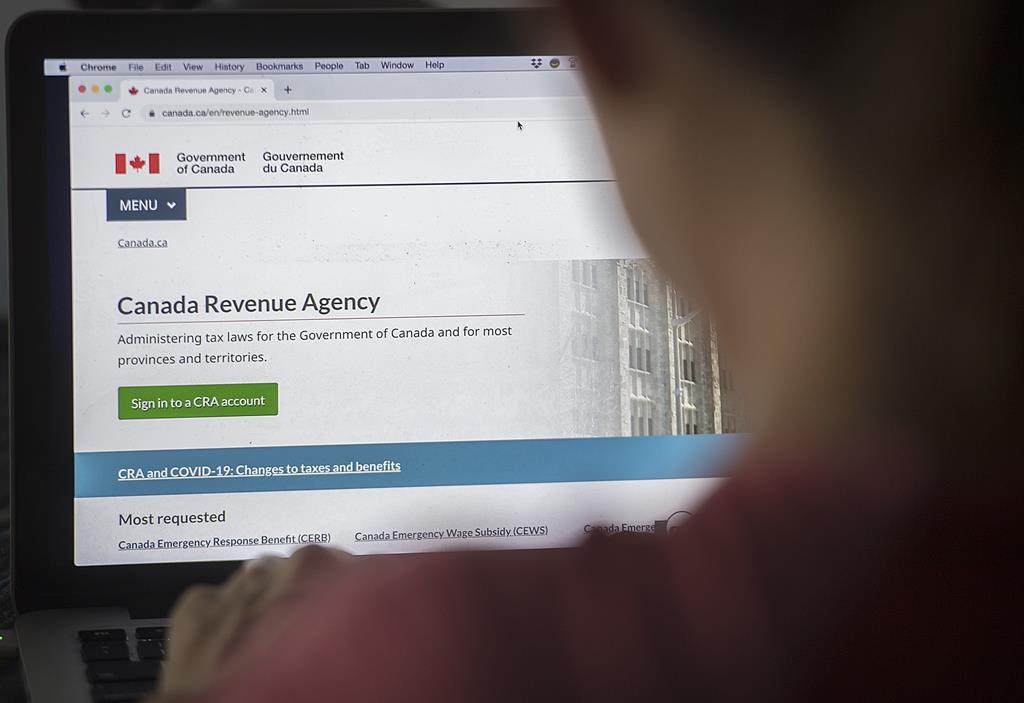OTTAWA — The federal taxpayers’ watchdog says complaints to his office spiked in the hours after he went public with concerns about how the Canada Revenue Agency locked users out of their online accounts.
The accounts were locked just over one week ago when the agency found evidence that an unspecified number of user IDs and passwords might have been stolen in a cyberattack.
It was later found that wasn’t the case, but not before notices went out to users of the CRA’s online services, who had their accounts locked as a preventive measure.
Taxpayer ombudsperson François Boileau says the issue has dominated the number of complaints his office has received, amounting to three-quarters of those filed in 24 hours this week.
Almost a third of people complaining about being locked out of their accounts were facing urgent and dire financial situations that Boileau says his office was trying to help quickly resolve.
Boileau says he believes the CRA didn’t initially provide adequate information to affected Canadians, causing widespread concern and confusion.
Worsening the problems was trouble users had reaching the CRA to unlock their accounts or get more information, which has driven complaints to Boileau’s office daily since the incident.
“It’s a typical case for me that sometimes the left hand may not know what the right hand is doing,” he says.
Boileau says the CRA should have had a clear communications plan ready to roll to avoid sowing confusions and concerns.
Citing people waiting on hold for extended periods, getting disconnected or rerouted to multiple call centre agents, or being directed to an external website, the watchdog says the agency’s communications fell short of what Canadians expect.
“They deserve to know what happened. They deserve to know, with clarity … usefulness and timeliness. And that’s something that ought to be at the forefront of every communication with the public,” Boileau says.
“Last week, it felt like it was not done in that spirit.”
This report by The Canadian Press was first published Feb. 25, 2021.
Jordan Press, The Canadian Press
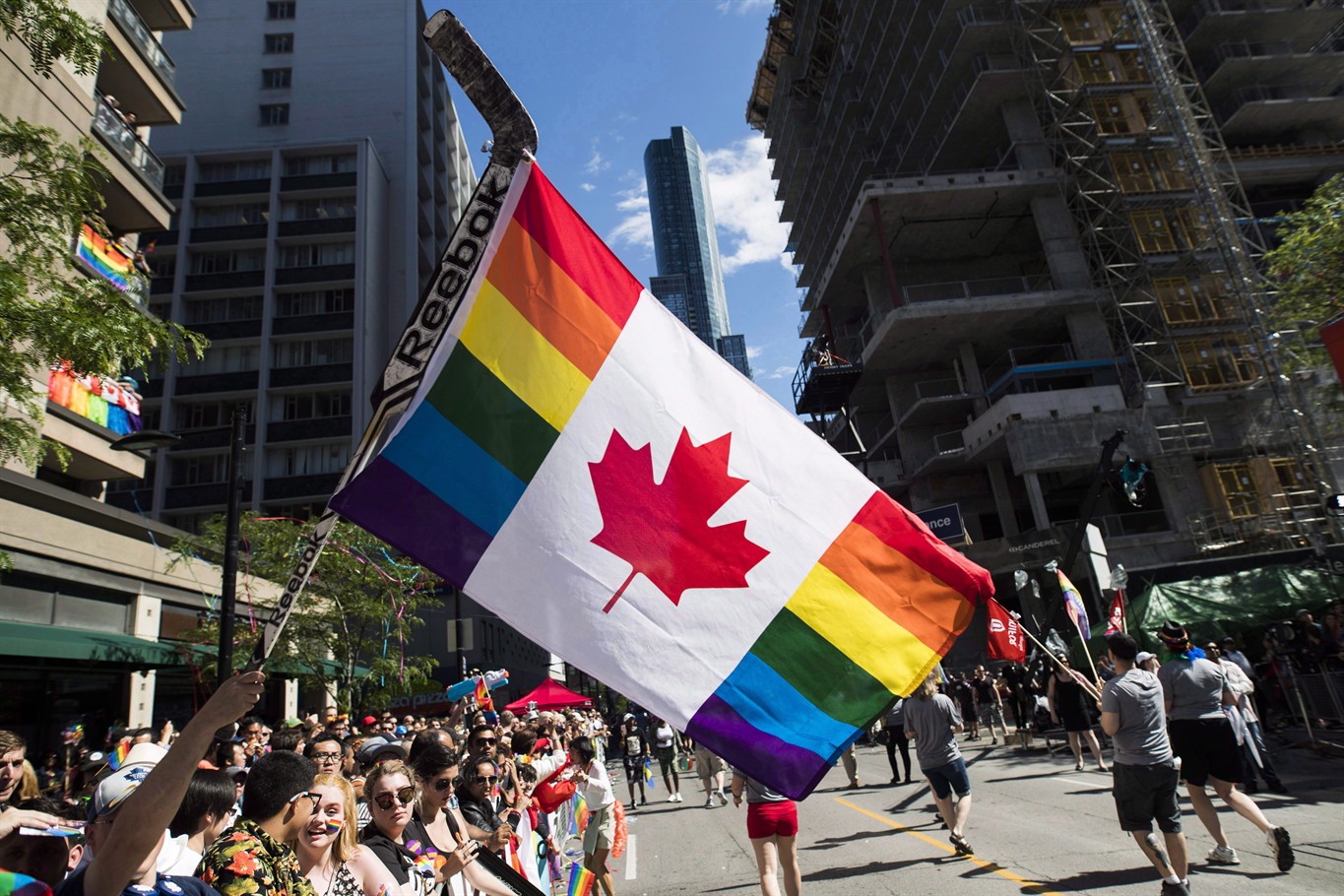
The City of Toronto has extended the cancellation of a number of in-person spring and summer events through July 1.
Among the City-permitted outdoor events to be cancelled are Canada Day parades and festivities in Scarborough and North York, while others such as Canadian Music Week, the Juno Awards, and the Pride parade have all indicated they will transition to a virtual event.
Events such as Luminato and the Toronto Jazz Festival are still considering whether or not to go virtual.
The City says the decision was made now to cancel these events due to the long lead times needed for planning by both City staff and businesses and to give event organizers time to develop alternative approaches that fall within public health guidelines.
“I want to thank all of these organizations for understanding the need to avoid large in-person gatherings in the coming months and thank you to those who have worked to offer virtual events to keep the spirit of these celebrations and in some cases the fundraising efforts going during these tough times,” said Mayor John Tory. “I strongly encourage the business community and as many Toronto residents as possible to support these events and the causes they in turn support. We must persevere to stop the spread of COVID-19.”
The City released a list of major events impacted by Wednesday’s decision
(for the most up-to-date status of an event, please contact the organizer)
• Toronto Marathon, half Marathon, 5k, 10k and relay (will be a virtual event)
• Sporting Life 10k (will be a virtual event)
• Canadian Music Week (will be a virtual event)
• Doors Open Toronto (cancelled)
• Juno Awards (will be a virtual event)
• Ride for Heart (will be a virtual event)
• NXNE Music Festival (will be a virtual event)
• Luminato (virtual option to be determined)
• The Enbridge Ride to Conquer Cancer (will be a virtual event)
• TD Toronto Jazz Festival (virtual option to be determined)
• Indigenous Arts Festival (will be a virtual event)
• Toronto International Dragon Boat Race Festival (will be a virtual event)
• Trans March, Dyke March & Pride Parade (will be a virtual event)
• Scarborough Canada Day Parade & Celebration (cancelled)
• Canada Day Celebrations at Mel Lastman Square (cancelled)
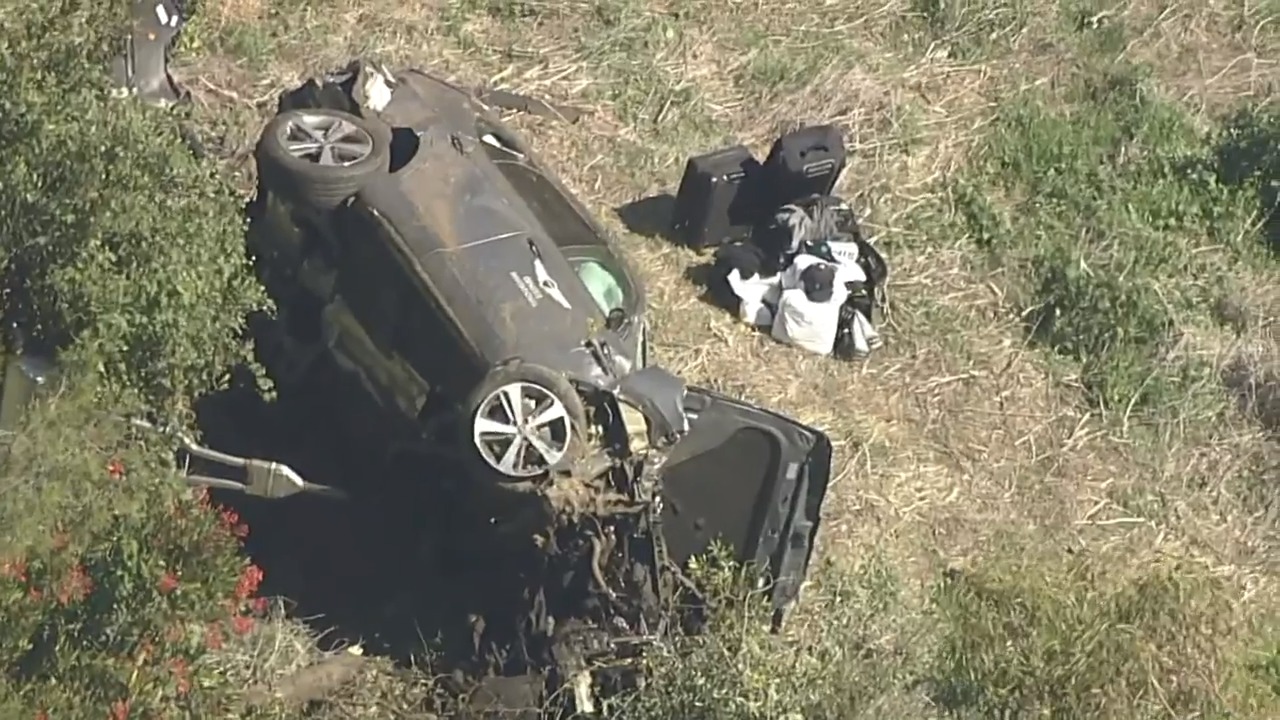
The Los Angeles County Sheriff’s Department says there was “no evidence of impairment” when officers arrived on the scene of the crash that injured golf legend Tiger Woods on Tuesday.
WATCH VIDEO: https://toronto.citynews.ca/2021/02/23/tiger-woods-crash/
Woods was alone in the SUV when it crashed into a raised median, crossed two oncoming lanes and rolled several times, authorities said at a news conference. No other cars were involved. The 45-year-old was alert and able to communicate as firefighters pried open the front windshield to get him out.
The airbags went off and the inside of the vehicle stayed basically intact, and that “gave him a cushion to survive the crash,” Los Angeles County Sheriff Alex Villanueva said. Both of his legs were seriously injured, county Fire Chief Daryl Osby said.
They said there was no immediate evidence that Woods was impaired. Authorities said they checked for any odor of alcohol or other signs he was under the influence of a substance and found none. They didn’t say how fast he was driving.
The crash happened on a sweeping, downhill stretch of a two-lane road through upscale Los Angeles suburbs. Sheriff’s Deputy Carlos Gonzalez, who was the first to get to the wreck, said he sometimes catches people topping 80 mph in the 45 mph zone and crashes are common.
“I will say that it’s very fortunate that Mr. Woods was able to come out of this alive,” Gonzalez said.
When the deputy arrived, a neighbour told him the driver was still in the vehicle. Gonzalez said he poked his head through a hole in the windshield and saw Woods with his seatbelt on.
The deputy asked Woods questions, including what day it was and where he was.
“Tiger was able to speak to me lucidly,” Gonzalez said. Woods appeared “incredibly calm,” the deputy said, likely because he was in shock.
A KABC-TV helicopter over the scene of Woods’ accident showed a car on its side with the front end heavily damaged. Airbags appeared to be deployed. The wreckage appeared to be just off the side of a road on a hillside.
The cause of the crash is still under investigation.
Woods was in Los Angeles over the weekend as the tournament host of the Genesis Invitational at Riviera, where he presented the trophy.
He was to spend Monday and Tuesday filming with Discovery-owned GOLFTV, with whom he has an endorsement contract. One tweet on Monday showed him in a cart smiling with David Spade.
According to Golf Digest, also owned by Discovery, the TV shoot was on-course lessons to celebrities, such as Spade and Dwyane Wade. He did not play.
The 15-time major champion last played Dec. 20 in the PNC Championship with his 11-year-old son, Charlie. He had a fifth surgery on his back, a microdiscectomy, two days before Christmas and gave no indication when he would return.
The Masters tournament is April 8-11 and when asked if he would be there during the CBS telecast, Woods replied, “God, I hope so.”
This is the third time Woods has been involved in a car investigation. The most notorious was the early morning after Thanksgiving in 2009 when his SUV ran over a fire hydrant and hit a tree.
That was the start of shocking revelations that he had been cheating on his wife with multiple women.
Woods lost major corporate sponsorship, went to a rehabilitation clinic in Mississippi, and did not return to golf for five months.
In May 2017, Florida police found him asleep behind the wheel of a car parked awkwardly on the side of the road. He was arrested on a DUI charge and said later he had an unexpected reaction to prescription medicine for his back pain.
Woods later pleaded guilty to reckless driving and checked into a clinic to get help with prescription medication and a sleep disorder.
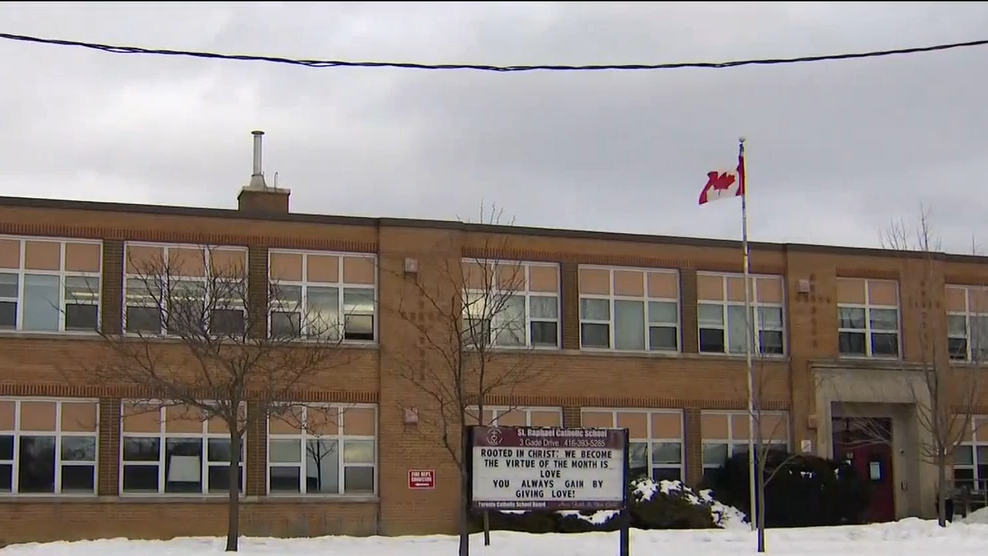
Several teachers at St. Raphael Catholic School are officially refusing to work and some parents are keeping their kids out of in-person learning after a report found classroom air often exceeded recommended carbon dioxide levels.
WATCH VIDEO: https://toronto.citynews.ca/2021/02/23/st-raphael-carbon-dioxide-concerns/
Experts say there are health concerns and some teachers say they’ve been suffering symptoms for years.
“How can they learn when the air quality is not up to par?” says parent Steve Zamengo. “It’s not just the students, it’s the staff, it’s everybody in the school.”
Zamengo is keeping his daughter, who attends Grade 7 at St. Raphael’s, at home. He says he’s too worried to send her to class after learning of the air quality at the school.
An air quality report commissioned by the Toronto Catholic District School Board (TCDSB) found classrooms at St. Raphael regularly exceeded recommended carbon dioxide limits of 800 and 1,200 parts per million (ppm) — an indicator of ventilation quality in occupied buildings.
The report states that the school does not have built-in mechanical ventilation, though there were portable air filters in classrooms at the time of the study. Investigators also found open windows didn’t improve air circulation.
The health impacts of carbon dioxide levels above 1,000ppm are collectively known as “sick building syndrome.” Ryerson University researcher Thomas Tenkate says symptoms include “headache, fatigue, skin and eye irritation and a bit of respiratory irritation.” He says that children could also experience cognitive effects.
“At that level, students are tending not to perform as well in regards to decision-making and numeric ability,” he explains. “What’s worrisome is, particularly for children, we consider them to be a vulnerable population because they basically breathe in more air than adults do.”
The educators’ local union representative says at least 11 teachers from St. Raphael’s have come forward saying they have symptoms.
“They said, in their own minds and discussions with me, ‘It makes sense now I’ve been consulting with my medical practitioners for the last couple of years describing the symptoms and now it’s starting to make sense,’” says Julie Altamore–DiNunzio, Toronto elementary unit president of the Ontario English Catholic Teachers Association (OECTA). “When they were home doing remote learning in December, January and part of February, they were not experiencing any of the symptoms at all.”
Just a week after being back in the classroom, Altamore–DiNunzio says teachers began experiencing symptoms once again and says some teachers would feel safer if they could teach remotely.
St. Raphael is one of 40 Toronto Catholic schools with no mechanical ventilation.
“In my view, this may just be truly the tip of the iceberg,” Altamore–DiNunzio adds.
Since the pandemic, air quality at schools has been a priority for the Ministry of Education. The ministry has given the TCDSB $4 million to improve ventilation at schools.
A spokesperson tells CityNews that the board has used the money to buy more than 2,300 filtration units, including portable high-efficiency particulate air (HEPA) filters for schools with no built-in ventilation systems.
In a statement, the TCDSB says St. Raphael remains a safe place for staff and students and that carbon dioxide readings never reached a level that would be deemed unsafe.
The Ministry of Labour, Training and Skills Development has been notified of a work refusal and an inspector has been assigned to the school. The investigation is ongoing.
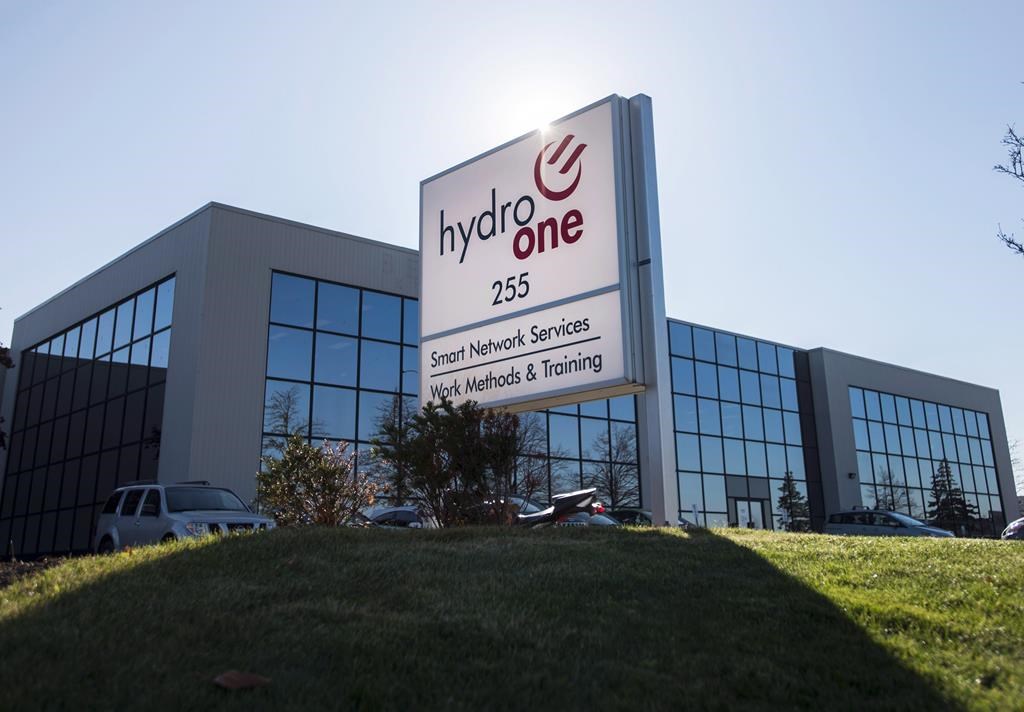
All good things must come to an end – and that includes cheaper hydro bills.
Ontario is re-hiking electricity rates, even for residents in Toronto and Peel Region while they continue to stay home.
An emergency order that allowed customers to keep the lights on around the clock for the lower, off-peak prices has now expired.
That means Ontarians will once again be billed based on the hour the electricity is used, or the tiered prices, which charge a fixed rate for a set amount of electricity consumption.
A spokesperson for the Ministry of Energy told 680 NEWS rates will return to normal now that lockdowns have been lifted for most of the province.
“Last fall, our government introduced customer choice for all Ontario customers,” said Spokesman Alex Puddifant in a statement. “We encourage customers who continue to work from home who are still paying time-of-use electricity rates to consider switching to the tiered rate option, offering a flat rate at all hours of the day.”
Some Toronto and Peel residents have expressed frustration online, noting it’s unfair to be paying the same prices as everyone else, even though they remain under stay-at-home orders until at least March 8.
However, the province can only apply emergency electricity relief to Ontario as a whole and is unable to offer electricity subsidies by region.
The ministry adds customers struggling to pay their hydro bill because of the pandemic can seek relief with their local provider through the COVID-19 Energy Assistance Program.
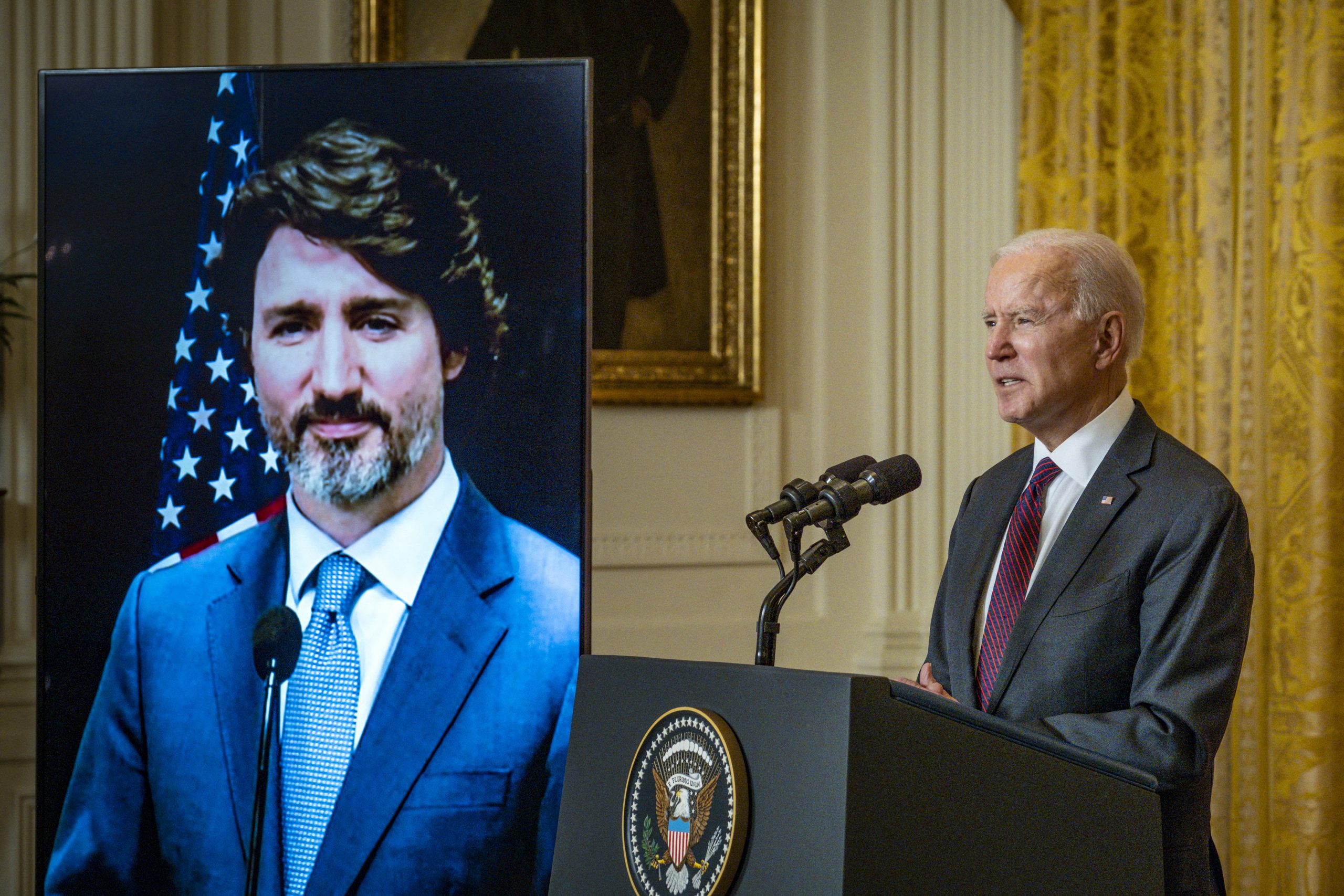
President Joe Biden’s first bilateral meeting with Canada’s Justin Trudeau since taking office was high on policy, low on pomp and featured a very large swipe at Biden’s predecessor as the coronavirus forced the two leaders to convene virtually Tuesday rather than gathering with customary Oval Office fanfare.
WATCH VIDEO: https://toronto.citynews.ca/2021/02/23/biden-trudeau-virtual-meeting/
The two leaders – Biden in the Roosevelt Room at the White House and Trudeau in the prime minister’s office in Ottawa – delivered friendly opening remarks in front of the media, with flags from both countries on display at both ends of the long-distance conversation.
“The United States has no closer friend, no closer friend, than Canada,” Biden said.
Trudeau, in turn, commended Biden for quickly rejoining the Paris climate accord, a worldwide pact to curb climate emissions that President Donald Trump walked away from early in his term. The prime minister, who had a frosty relationship with Trump at times, worked in a jab at Trump as he praised Biden.
“U.S. leadership has been sorely missed over the past years,” Trudeau said. “And I have to say as we were preparing the joint rollout of the communique on this, it’s nice when the Americans are not pulling out all the references to climate change and instead adding them in.”
In remarks at the end of the talks, Biden for the first time publicly spoke out against the detention of two Canadian citizens imprisoned in China in apparent retaliation for Canada’s arrest of a top Huawei executive.
“Human beings are not bartering chips,” Biden said of the two Canadians. “We are going to work together until their safe return.”
Trudeau, for his part, publicly thanked Biden for his support in seeking the men’s release.
Michael Spavor and Michael Kovrig were detained in China following the arrest of Huawei Chief Financial Officer Meng Wanzhou in Canada after the U.S. requested her extradition to face charges that the Chinese telecom company executive committed wire and bank fraud and violated U.S. sanctions on Iran. She denies the allegations.
China lashed out at Canada last week for joining the U.S. and 56 other countries in endorsing a declaration denouncing state-sponsored arbitrary detention of foreign citizens for political purposes.
Trudeau’s broadside of Trump was a notable coda to a relationship marked by some notably undiplomatic moments.
The Republican president, in a fit of pique in 2018, took to Twitter to label the prime minister “dishonest and weak” after Trudeau voiced objections to Trump raising tariffs on steel and aluminum from Canada, Mexico and the European Union.
Trump blew up again at Trudeau in 2019, calling him “two-faced” after the Canadian leader was caught on video mocking the American president as he spoke to other world leaders on the sidelines of a NATO conference at Buckingham Palace.
In pre-pandemic times, the Biden-Trudeau meeting would have been held with far more fanfare: Biden welcoming the Canadian prime minister with great ceremony upon his arrival, an Oval Office talk between the two leaders, a joint news conference and perhaps a luncheon.
But with both leaders stressing caution to their citizens, Biden and Trudeau set aside the typical protocol in favour talks by video conference. U.S. presidents traditionally invite the Canadian prime minister for their first meeting with a world leader.
While cable stations in the United States stuck with breaking news about pro golfer Tiger Woods’ serious car crash, Canada’s CTV and CBC carried the leaders’ opening remarks live.
The two leaders agreed to a “road map” outlining how the neighbouring countries will work together to fight COVID-19, curb climate emissions and pursue other shared priorities.
It was unclear whether Trudeau again raised with the Democratic president the idea of allowing Canada, which is struggling to vaccinate its population, to buy vaccines from pharmaceutical giant Pfizer’s manufacturing facility in Michigan. Canada currently is getting vaccines shipped from a Pfizer plant in Belgium.
Trudeau brought up the issue when the two leaders spoke by phone last month, Biden’s first call to a foreign leader as president. But Biden’s “first priority” remains “ensuring every American is vaccinated,” White House press secretary Jen Psaki said ahead of the meeting.
The prime minister’s office said in a statement that Biden and Trudeau discussed how the pandemic “will not end until everyone, everywhere has access to a vaccine” and “the importance of avoiding measures that may constrain the critical trade and supply-chain security between our countries.”
Neither leader in public remarks mentioned differences over Biden’s “Buy American” executive order or his decision to halt construction of the Keystone XL pipeline, a transcontinental project that was to bring oil from the tar sands of Alberta to the Texas Gulf Coast, passing through Montana, South Dakota, Nebraska, Kansas and Oklahoma.
Trudeau, who supported the project, expressed his disappointment with Biden’s decision when the two spoke by phone last month.
The “Buy American” executive order that Biden signed during his first week in office is designed to encourage the federal government to spend more of the roughly $600 billion earmarked for procurement to boost U.S. factories and hiring.
Biden previously said that as part of the push he was creating a “Made in America” office to evaluate contracts and make sure waivers are used only in “very limited circumstances.” The issue is crucial to Canada since the U.S. accounts for about 75% of its exports.
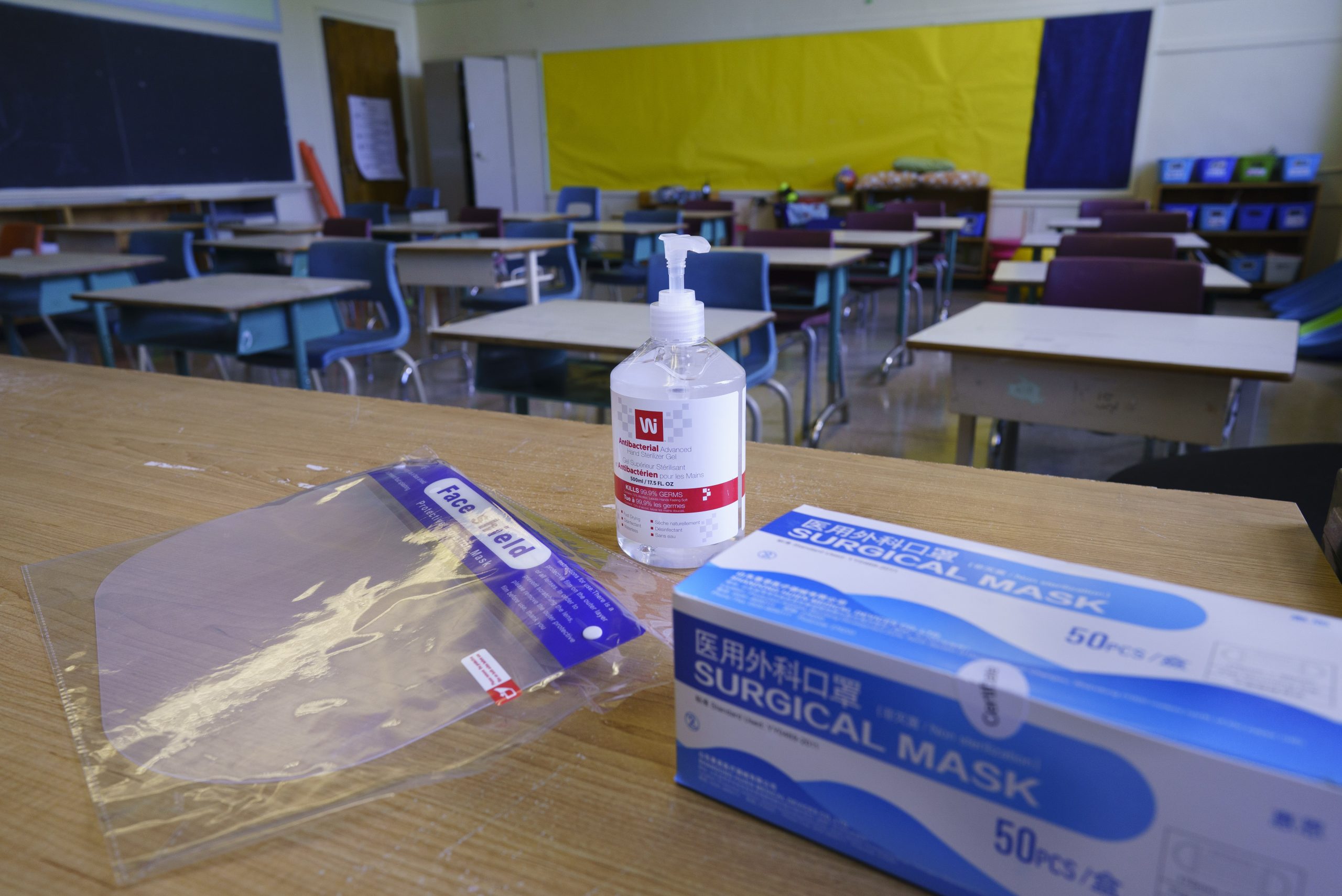
Among the regions enrolled in the province’s asymptomatic testing program for schools, Toronto had the highest positivity rate, according to new statistics released by the Ministry of Education.
Toronto’s positivity rate of 1.19 per cent was highest, followed by Peel (1.07) and Ottawa (0.85).
Hamilton and Sudbury saw no new cases identified.
“Our government has taken action to deploy asymptomatic testing province-wide, the first program of its kind in Canada, as we recognize its strength as an additional layer of protection in our schools,” Minister of Education, Stephen Lecce, said in a release.
“I encourage all students, staff and families to take advantage of this program – which uses the least invasive testing options possible – when offered for their school community.”
As of Monday at 10:30 a.m., the province says there have been 7,998 total school-related cases of COVID-19 across Ontario. Of those total cases, 5,560 have been students.
Ten schools are currently closed due to outbreaks.

In a significant defeat for former President Donald Trump, the Supreme Court on Monday declined to step in to halt the turnover of his tax records to a New York state prosecutor.
The court’s action is the apparent culmination of a lengthy legal battle that had already reached the high court once before.
Trump’s tax records are not supposed to become public as part of prosecutors’ criminal investigation, but the high court’s action is a blow to Trump because he has long fought on so many fronts to keep his tax records shielded from view. The ongoing investigation that the records are part of could also become an issue for Trump in his life after the presidency. Trump has called it “a fishing expedition” and “a continuation of the witch hunt _ the greatest witch hunt in history.”
The Supreme Court waited months to act in the case. The last of the written briefs in the case was filed Oct. 19. But a court that includes three Trump appointees waited through the election, Trump’s challenge to his defeat and a month after Trump left office before issuing its order.
The court offered no explanation for the delay, and the legal issue before the justices did not involve whether Trump was due any special deference because he was president.
The court’s order is a win for Manhattan District Attorney Cyrus Vance Jr., who has been seeking Trump’s tax records since 2019 as part of an investigation. Vance, a Democrat, had subpoenaed the records from the Mazars accounting firm that has long done work for Trump and his businesses. Mazars has said it would comply with the subpoena, but Trump, a Republican, sued to block the records’ release.
Vance’s office had said it would be free to enforce the subpoena and obtain the records in the event the Supreme Court declined to step in and halt the records’ turnover, but it was unclear when that might happen. In a three-word statement, Vance on Monday said only: “The work continues.”
Representatives for Trump did not immediately respond to a request for comment.
The case the high court ruled in involves a grand jury subpoena for more than eight years of Trump’s personal and corporate tax records. Vance has disclosed little about what prompted him to request the records. In one court filing last year, however, prosecutors said they were justified in demanding the records because of public reports of “possibly extensive and protracted criminal conduct at the Trump Organization.”
Part of the probe involves payments to two women _ porn actress Stormy Daniels and model Karen McDougal _ to keep them quiet during the 2016 presidential campaign about alleged extramarital affairs with Trump. Trump has denied the affairs.
In July, the justices in a 7-2 ruling rejected Trump’s argument that the president is immune from investigation while he holds office or that a prosecutor must show a greater need than normal to obtain the tax records.
Justices Neil Gorsuch and Brett Kavanaugh, whom Trump nominated to the high court, joined that decision. It was issued before Trump’s third nominee, Justice Amy Coney Barrett, replaced the late Justice Ruth Bader Ginsburg on the court.
As part of its July decision, the high court returned the Vance case and a similar case involving records sought by Congress to lower courts. And the court prevented the records from being turned over while the cases proceeded.
Since the high court’s ruling, in the Vance case, Trump’s attorneys made additional arguments that his tax records should not be turned over, but they lost again in federal court in New York and on appeal. It was those rulings that Trump had sought to put on hold.
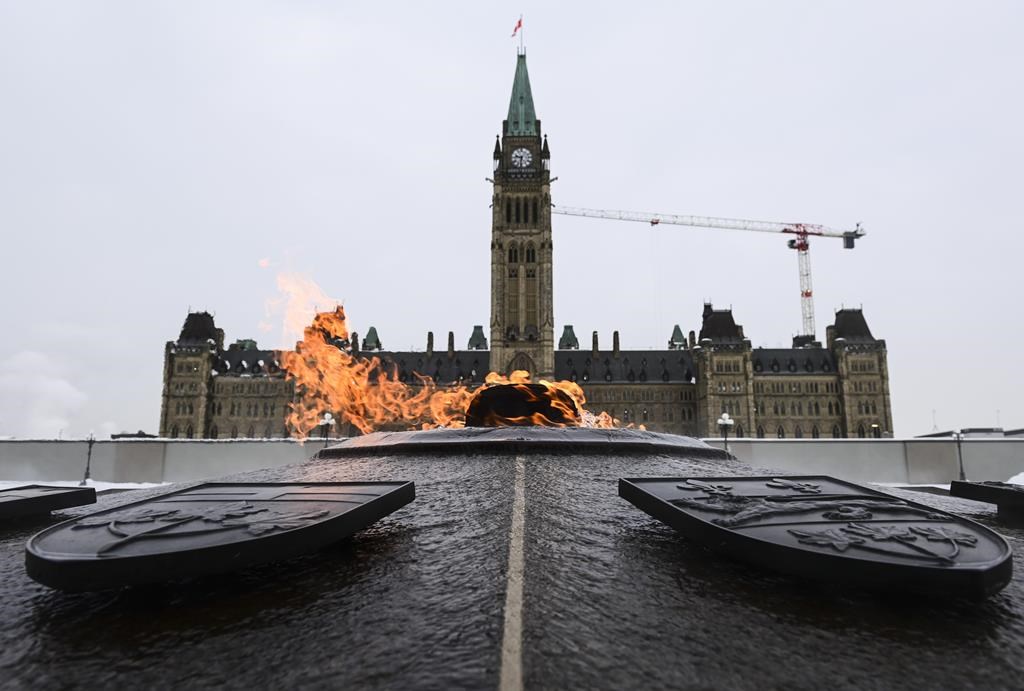
OTTAWA — Canada’s House of Commons voted unanimously in favour Monday of a Conservative motion declaring as genocide the atrocities committed against ethnic Muslim Uighurs in China’s Xinjiang province.
Prime Minister Justin Trudeau and all of his Liberal cabinet ministers abstained from the politically charged vote, which took place mainly over video, and against the backdrop of all-but-frozen relations between Beijing and Ottawa.
China has imprisoned two Canadian men, Michael Kovrig and Michael Spavor, on what the government and dozens of its allies say are bogus charges in retaliation for the RCMP’s December 2018 arrest of Huawei executive Meng Wanzhou on a U.S. extradition warrant.
Foreign Affairs Minister Marc Garneau registered a formal abstention on behalf of the government, drawing audible jeers over the video feed.
Dozens of Liberal MPs supported the Conservative motion, which passed by a 266-0 margin, amid the cabinet abstentions in the 338-seat Commons.
The vote is largely symbolic but represents growing political opposition to widespread reports of atrocities against Chinese minorities, accusations the China’s communist leaders vociferously deny.
MPs also voted in favour of an amendment from the Bloc Quebecois to call upon the International Olympic Committee to move the 2022 Olympic Games out of China if the genocide continues.
The Liberal support came after the Conservatives called on Liberal MPs to support the party’s motion earlier in the day.
Conservative MPs Michael Chong and Garnett Genuis were joined by Uighur community members at a teleconference Monday in calling for the government’s support, suggesting that unanimity would send a strong signal to China.
“We can no longer ignore this,” said Chong, the party’s foreign affairs critic.
“We must call it for what it is: a genocide.”
The Conservatives tabled the motion in the House of Commons last week for vote to formally declare that crimes against Uighur Muslims in China’s Xinjiang province constitute a genocide.
The move was non-binding but it has angered China and its ambassador to Canada warned Canadian MPs to butt out of his country’s internal affairs days earlier.
Genuis, the critic for international development and human rights, said the Conservatives expected to have the support of opposition parties to pass the motion.
“But we believe the message will be that much stronger and clearer if as many members of the government as possible join with us and show that we are able to stand together on issues of fundamental human rights,” he said earlier Monday.
Trudeau has stopped short of agreeing with American officials, human rights advocates and legal scholars who argue the violations amount to a genocide, saying it is a loaded word that has to be used carefully. But he has said serious human rights abuses are taking place in the western Chinese province.
Trudeau and U.S. President Joe Biden will be discussing China in their virtual meeting on Tuesday.
Opposition parties indicated before the vote they were prepared to support the Conservative motion.
“New Democrats recognize that China’s measures of mass detention, forced labour, surveillance and population control, such as forced sterilization, against Uighurs and Turkic Muslims in Xinjiang meet the definition of genocide,” said NDP Leader Jagmeet Singh in a statement.
Bloc Quebecois Leader Yves-Francois Blanchet said his party would support the motion so long as their amendment on the Olympics was passed.
A Green party spokesman said it would support the Conservative motion, and the Bloc amendment.
Montreal Liberal MP Anthony Housefather said on Twitter before the vote that he would vote in support of the genocide motion. His backbench colleagues fell in line like virtual dominoes once the voting started.
Earlier Monday, Chong dismissed the Chinese government’s claims there is no genocide taking place in Xinjiang.
Ambassador Cong Peiwu recently told The Canadian Press that reports of millions of people in detention camps being subjected to forced labour, sterilization and other abuse is simply unsubstantiated China-bashing.
Chong rejected that denial, saying there are reams of satellite images, smuggled video and documents, accounts from escaped Uighurs and undercover reporting by major American newspapers to document the atrocities.
“The evidence has come in the form of high-definition, high-resolution satellite imagery that has been tracked over time that documents clearly the building of hundreds of detention centers,” said Chong.
The Tories were joined by Kalbinur Tursun, a Uighur who fled China and has spoken publicly against the Communist party’s treatment of her people in Xinjiang.
Speaking through a translator provided by the party, she said the world didn’t believe the horrors of the Holocaust until the concentration camps were exposed for all to see after the Second World War.
“Yesterday’s Jews are today’s Uighurs,” said Tursun.
Two weeks ago, Tursun said Chinese police contacted her with “threatening texts and phone calls reminding me to cease talking.” She said she was speaking publicly in an appeal to save the lives of her relatives back home.
A Canadian parliamentary subcommittee concluded in an October report that China’s treatment of Uighurs is a genocide, a finding China rejected as baseless. The committee heard from Uighur witnesses who gave first-hand accounts of atrocities.
“What we see before our eyes is not complicated. We see the existence of modern concentration camps,” said Genuis.
“When you think of slaves being forced to pick cotton, you might initially think of images of the Antebellum South. But that description equally describes what is happening in Xinjiang.”
This report by The Canadian Press was first published Feb. 22, 2021.

Starting Monday, all international passengers arriving at major Canadian airports have to complete a mandatory three-day hotel quarantine once they land, along with a suite of measures meant to prevent contagious COVID-19 variants from entering the country.
WATCH: https://toronto.citynews.ca/2021/02/22/exclusive-federal-hotel-quarantine-rules-being-ignored-by-some/
Prime Minister Justin Trudeau has said the tighter border controls are meant to keep everyone safe, not punish travellers. But for some these extra measures may be seen as such.
One Toronto woman refused to comply with the new rules, citing financial concerns. She walked out of the airport to quarantine at her home, alone, as caught on camera by CityNews.
“I’m being forced to go to this hotel,” said a visibly frustrated Priya Harrynadan. “I have no money, so how am I going to go to a hotel right now? This is really stressful because I feel like they’re holding me against my will, they’re questioning me. I have no choice… she told me I have no choice, I have to go to the hotel.”
When Trudeau announced the new measures earlier this month, he estimated costs could run up to $2,000 per person. However rates at the Alt Hotel Toronto Airport and the Sheraton Gateway Hotel at Toronto Pearson International Airport, two of the hotels currently participating in the government quarantine program, start at $339 and $319 per person respectively, hotel employees say — which still adds up to around $1,000 for three days.
Previously, the Quarantine Act stated that all travellers had to complete a mandatory 14-day quarantine at home. It is unclear how many travellers haven’t been complying with that order.
Cara Zwibel, a lawyer for the Canadian Civil Liberties Association, says she has been asking the federal government for that data, but they haven’t made it public.
She believes that could mean the new hotel quarantine rules are a violation of the Charter of Rights in terms of leaving and entering the country.
“It’s going to be difficult for the government to forcibly take people to go to hotels if they don’t want to go,” she said. “We really don’t know if there’s good evidence that says … before this rule was in place there were a lot of people who were not following those rules, who were not isolating at home. To me that would be the only justification for this.”
In addition, there are some other bumps in the road — along with getting tested upon arrival, a pre-confirmed hotel booking must be presented once you land at the airport. But pre-booking a hotel has been anything but easy.
Cindy Rajacic’s 70-year-old mother flew to Serbia to be with her dying brother. She’s due to arrive in Canada on Tuesday, but it took Cindy almost 24-hours to book her a hotel room. She says the process needs to be simplified.
“Please put things in place where we can reach someone. We want to abide by all the rules, but give us other options,” she said.
With files from News Staff









